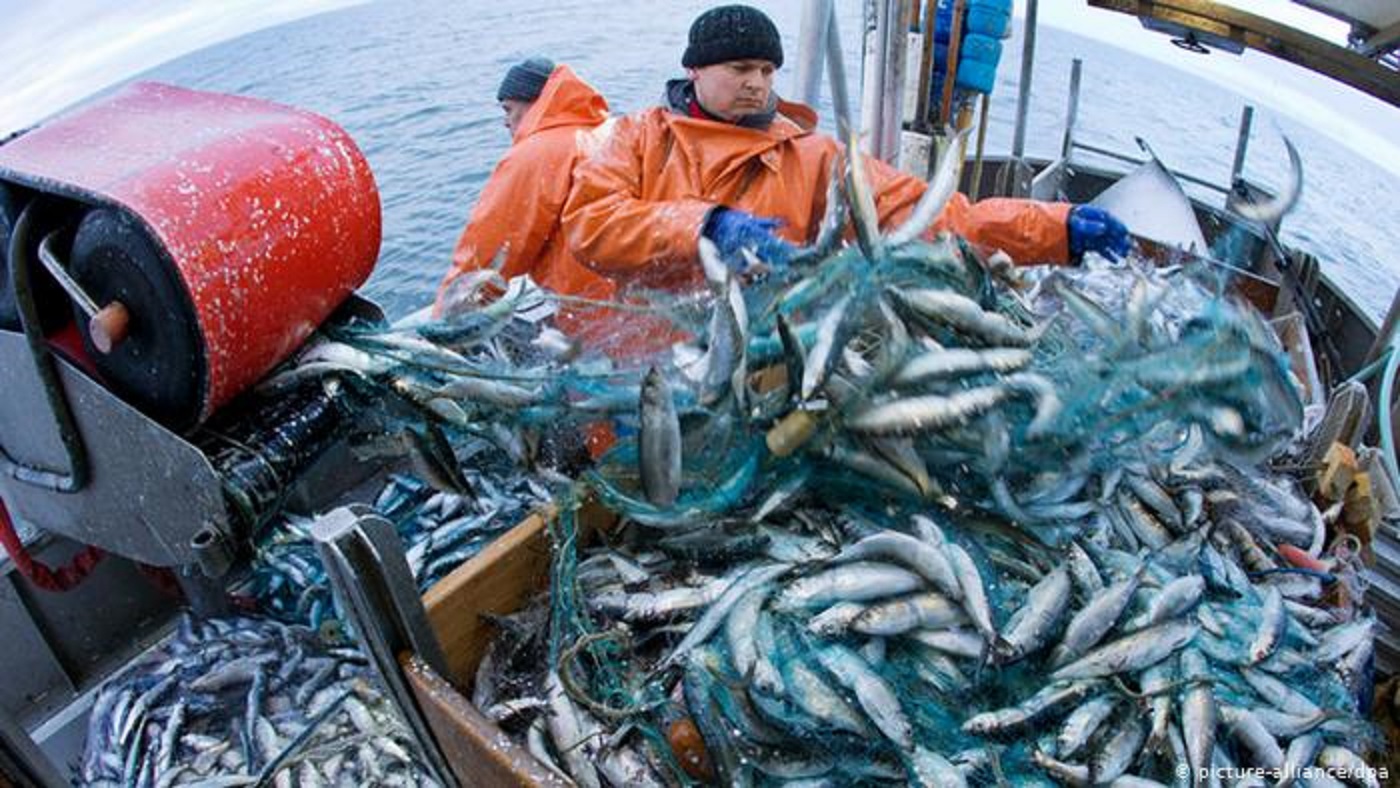11 Dec 2024

Tired Earth
By The Editorial Board

The COVID-19 pandemic that has gripped the world for much of the past year has disrupted many industries, and fisheries are no exception. An early analysis estimates that in the United States, the pandemic has caused fresh seafood catches to decline by 40 percent relative to 2019, while imports fell by 37 percent and exports by 43 percent.
To arrive at these numbers, University of Vermont quantitative ecologist Easton White and his colleagues had to get creative. Most fisheries data is not typically available until months or years after the fact, so the team instead drew from a diverse mix of sources: two highly regulated Alaska fisheries, halibut and sablefish, that report their data weekly; data on seafood trade from US Customs and Border Protection; media reports; Google searches; and measurements of foot traffic at seafood markets derived from cell phone location-based tracking. Scouring these sources let them build an early picture of how the pandemic has affected the industry.
White says the steep downturn has not been felt the same across the industry. “It was a mixed bag,” he says. “We saw reductions in some [fisheries sectors], but in others there was no difference or even an increase.” Demand for fresh seafood, for example, dropped, while frozen and processed products were generally less affected.
The decline in demand for fresh seafood was driven in large part by the closure of restaurants and fish markets during lockdown. In the United States, restaurants account for two-thirds of spending on seafood, and demand dropped by more than 70 percent in the early days of the pandemic. A sharp increase in delivery and takeout services—of 270 percent—only partially offset this decline.
Some of these changes in consumer patterns appear to be quite durable, says White, with numbers for takeout and delivery remaining high even as restaurants reopened. There was also a shift to more local sales, as the industry looked to shorten supply chains to mitigate some of the effects of falling demand.
White says the economic damage to the seafood industry, which is worth tens of billions of dollars and employs millions of people, could be huge but uneven, with the disparity exacerbated by the seasonality of many fisheries. “If the season happens to fall during the pandemic, they will be hit hard,” he says. “The question will be, do they have enough support to make it to next year?”
There is also unlikely to be an ecological silver lining to this sudden decline in fishing activity.
Ray Hilborn, who studies fisheries management at the University of Washington, says the drop in catches of seafood intended to be sold fresh is unlikely to have much long-term effect on stocks, at least in North America where most fisheries are well-regulated and sustainably managed. Just seven percent of US fisheries are subject to overfishing, Hilborn says, and while that does include some that focus on fresh fish, such as Gulf of Maine and Georges Bank cod fisheries, a temporary drop in the catch is unlikely to make much difference to those fish populations.
“There will not be much effect if it’s only for one or two years,” he says. “It would have to be a permanent change. But it also depends a lot on how excessive the fishing pressure is.”
Jackie Marks, a senior public relations manager for the Marine Stewardship Council, which inspects fisheries to assess their sustainability, says it has not relaxed its standards during the pandemic, but has had to find new ways to carry out inspections, for example by conducting audits remotely.
“We are working hard to accommodate local constraints on partners, but must maintain the integrity of our global certification programs for the long-term benefit of all partners,” says Marks.
But the pandemic may have opened the door to more illegal fishing and encroachment on marine protected areas, says White, as regulators have reduced the number of observers they’re deploying and have scaled back patrols.
Comment